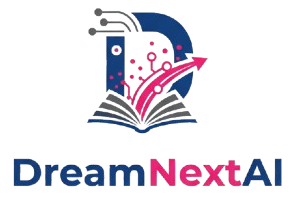As we dive deeper into 2025, the role of AI tools in customer support becomes increasingly transformative. The integration of artificial intelligence is reshaping how businesses interact with customers, elevating both efficiency and satisfaction levels. In this blog post, we explore the revolutionary changes AI is making in customer support, including key features, benefits for users, and a comparative analysis of traditional support versus AI-enhanced methods.
Key Features of AI in Customer Support
AI technologies are characterized by various advanced features that make customer support faster and more personalized. Some significant features include:
- Chatbots and Virtual Assistants: 24/7 support, instant responses, and handling FAQs.
- Natural Language Processing (NLP): Understanding and interpreting customer inquiries more accurately.
- Predictive Analytics: Anticipating customer needs based on historical data.
- Automated Ticketing Systems: Streamlining the process by categorizing and prioritizing support requests.
- Sentiment Analysis: Evaluating customer emotions to tailor responses accordingly.
Benefits for Users
The adoption of AI tools in customer support brings multiple advantages for both organizations and customers:
- Enhanced Efficiency: AI can handle multiple cases simultaneously, reducing wait times for customers.
- Increased Accuracy: AI systems minimize human error, ensuring correct information is relayed.
- Personalized Service: AI leverages data to offer tailored recommendations and responses to individual queries.
- Lower Operational Costs: By automating tasks, businesses can reduce the need for extensive human support teams.
- Improved Customer Experience: Quick resolution of issues leads to higher customer satisfaction and loyalty.
Comparing Traditional Customer Support vs. AI-Enhanced Support
The ways in which customer support operates have evolved significantly with the implementation of AI. Here’s a comparison of traditional methods versus AI-enhanced approaches:
1. Response Time
Traditional Support: Involves human agents who may require time to process and respond to inquiries, leading to potential delays.
AI-Enhanced Support: Offers real-time responses, effectively reducing wait times and enhancing customer satisfaction.
2. Availability
Traditional Support: Typically limited to business hours, creating inconvenience for customers in different time zones.
AI-Enhanced Support: Operates 24/7, allowing customers to seek assistance any time of the day or night.
3. Problem Resolution
Traditional Support: Human agents may struggle with complex inquiries due to the volume of requests.
AI-Enhanced Support: Uses machine learning to improve over time, ensuring efficient problem-solving and better resource management.
4. Scalability
Traditional Support: Scaling requires hiring additional personnel, which can be time-consuming and costly.
AI-Enhanced Support: Easily scalable, as AI systems can handle an increased load without significant additional costs.
Conclusion: The Future of Customer Support
As we navigate through 2025, the incorporation of automation and machine learning tools in customer support is proving to be a game changer. Organizations that embrace these technologies are not only improving their operational efficiency but also enhancing the overall customer experience.
In conclusion, the future is bright for AI-driven customer support solutions. They provide a pathway for businesses to stay competitive while meeting the evolving demands of customers. If you’re looking to transform your customer support system with cutting-edge technology, consider integrating AI tools that can streamline operations and elevate customer satisfaction.
Explore how DreamNextAI.com can guide you through your AI implementation journey to make the most of these innovative tools!

